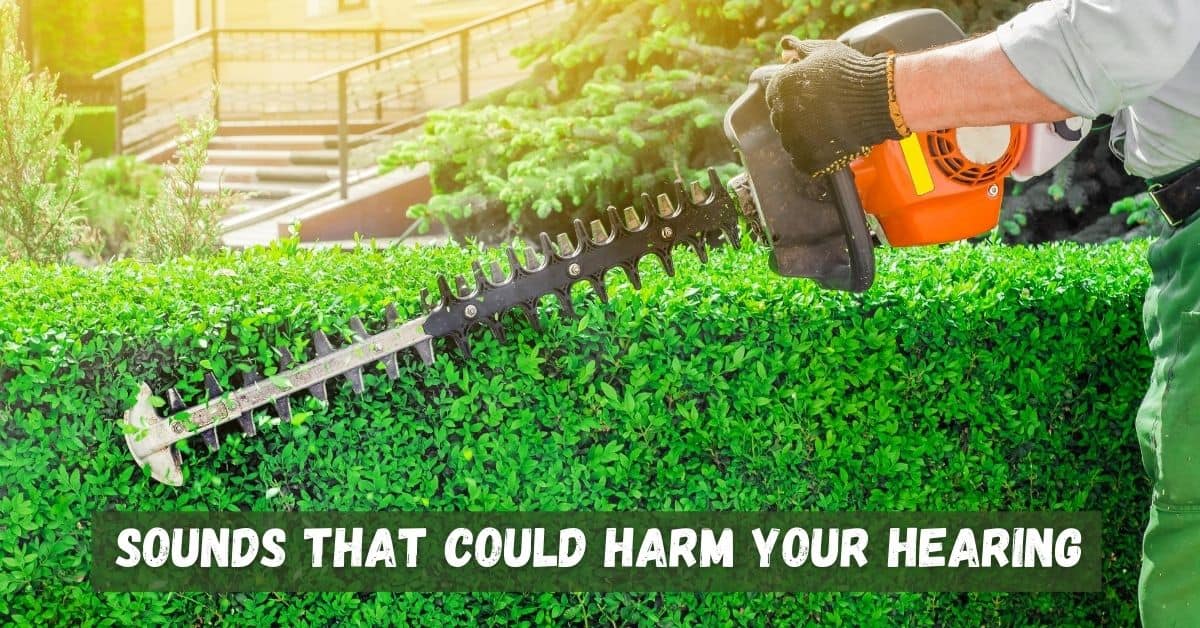
If you have ever heard a gun fired or a firework explode, you have a sense of how dangerous sound can be to your hearing. Without the proper protection, just one of these events can leave your ears ringing and can cause serious harm particularly if the sound is repeated.
However, these obviously loud sounds are not the only ones to pose a hearing risk. Many of the appliances, machines, and devices in our everyday lives can emit sound loud enough to cause hearing damage.
As a general rule, any sound above 85 decibels is sufficient to cause hearing damage, but you might not be familiar with which sounds are above or below that threshold. The following common activities and sounds require hearing protection to avoid a risk of permanent hearing damage.
Loud Vehicles
Although most cars and trucks are not loud enough to cause hearing damage, some vehicles like garbage trucks and gas-powered lawn mowers or tractors are loud enough to pose a hearing risk. With sounds upward of 90 decibels, it is best to wear hearing protection while using these vehicles for work or personal use. Motorboats and motorcycles are culprits of very loud sound, as well, often emitting beyond 100 decibels.
Power Tools
Leaf blowers, power saws, and jackhammers are all power tools that can exceed 100 decibels of noise, so they should only be used for 15 minutes or less without hearing protection. Even better, use earplugs to protect your hearing from damage. Even using disposable foam earplugs can be sufficient to reduce your hearing risks by 10-15 decibels, putting the level of effective noise closer to the safe range.
Workplace Risks
Although we might already know that jobs such as welding, factory work, driving emergency vehicles, and repairing aircraft are a serious risk to our hearing, other jobs can be a risk when they are performed for too long. Hairdryers can be as loud as 100 decibels, so imagine the effect on a stylist who uses this tool for a long shift at the salon.
Hearing protection would be a good idea in this case, as would be pursuing a quiet hair dryer set to 60 decibels of noise production. Those who work in restaurants, bars, and even elementary schools can encounter damaging levels of noise. In each of these places, voices can create a reverberant din of noise that climbs into the dangerous range. As the noise level in a venue gets louder, we have a tendency to try to talk over the noise, only adding to its effect. Those who work as servers, bartenders, lunchroom food servers, or recess attendants can experience long-term effects from on-the-job noise exposure.
Quickly Damaging Sound
Although many of these levels of noise only become a risk when they are encountered for a long period of time, other sounds can be damaging in remarkably short periods of time. Firearms can emit sound between 140-175 decibels, meaning that even a single exposure without hearing protection can do lasting damage.
Those who enjoy going to a shooting range for practice, hunting, or who work in places where firearms are used can all experience damage in a matter of minutes when they are fired at close range without hearing protection in place.
Military officers should be supplied with hearing protection, but it is important to know when, where, and for how long that protection is necessary. Fireworks displays can similarly emit 150-175 decibels of sound, which might not be a problem for someone who attends the event once a year on the 4th of July (though the hearing protection is recommended even for this annual event).
Those who work in places that have regular fireworks displays or who are tasked with igniting them need hearing protection to avoid permanent damage.
Protecting Your Hearing
If you find yourself exposed to any of these sounds in everyday life or in the workplace, don’t take a cavalier attitude to noise exposure. Wearing hearing protection can make all the difference when it comes to hearing protection, even if that means inserting disposable foam earplugs. More advanced forms of protection are necessary for louder sonic events and for those who have prolonged exposure at work.
If you are concerned about your hearing abilities, contact us today to learn more about our comprehensive hearing health services.
